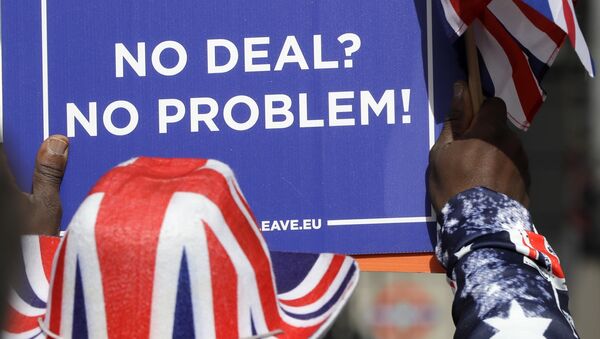Theresa May's Withdrawal Agreement was defeated in the UK Parliament twice now, on 15 January and most recently, following its revision by the government, on 12 March.
READ MORE: UK Parliament Rejects May's Withdrawal Deal, Prepares for Vote on No-Deal Brexit
The Prime Minister, defiant in her determination to see Brexit negotiations through, could modify the deal and have the MPs take a vote on it again in what little time is left before the 29 March deadline.
However, some MPs have questioned whether bringing back the deal complies with the rules of the Parliament.
Labour MP Angela Eagle asked whether a motion can be brought back repeatedly to the House, even when it has been rejected.
The Speaker of the House, John Bercow answered:
"No answer is required now but a ruling will be made about that matter at the appropriate time. I'm grateful to the right honourable lady for reminding me a ruling might be required."
— Maria Eagle MP (@meaglemp) March 14, 2019
On Thursday, the PM's spokesman said that if the government felt it was right to bring back the Brexit deal vote, it will do so judging on the circumstances.
The Leader of the Parliament, Adrea Leadsom similarly didn't rule out the return of the Brexit deal vote.
"Any motion that we would table for any further approval would reflect the situation at the time, if it were to be tabled," Leadsom said.
The Speaker of the House could potentially call on the rules outlined in Thomas Erskine May's guide to parliamentary practice.
"A motion or an amendment which is the same, in substance, as a question which has been decided during a session may not be brought forward again during that same session. Whether the second motion is substantively the same as the first is a matter for the chair," the Erskine May rulebook states.
The rule hasn't been used since 1943, and the Speaker is meant to follow the will of the House, but it is ultimately to Bercow's discretion to settle the issue.
On Thursday, the British lawmakers have submitted a proposal calling for the Parliament to take charge of Brexit and hold a number of indicative votes on what the UK should do next in the week beginning March 25.
Later in the day, the MPs will vote on the extension of Article 50, essentially indicating whether they support a delay of Brexit.
— UK House of Commons (@HouseofCommons) March 14, 2019



